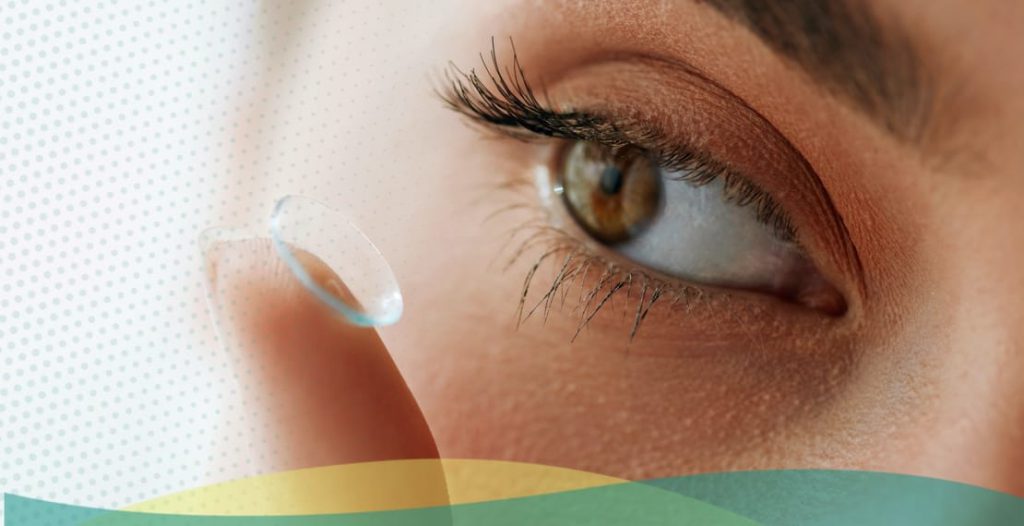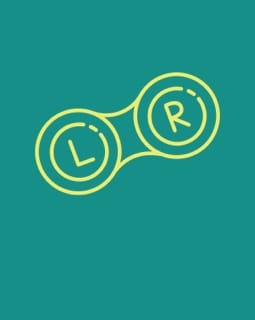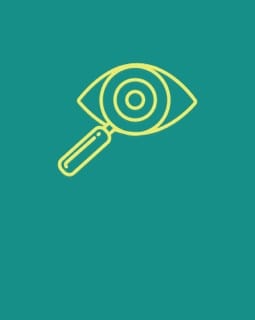Know the Risks of Eye Disease
At Downtown Eye Care & The Contact Lens Department, we have provided Ottawa with specialized eye care for over 30 years. No matter what care you need, we’re here to help.
Whether it is a comprehensive eye exam, specialty contact lenses, or eye disease management, we have the experience to help with your vision needs. Come visit us and we can help support your visual health.

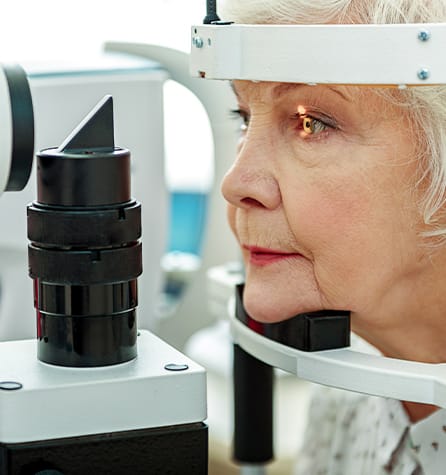

What are Cataracts?
Cataracts occur when the normally clear lens in your eye hardens and becomes opaque. They are a relatively common part of the aging process.
Sometimes, vision loss from cataracts can be helped with glasses, but when that is no longer enough, surgery is an option. Surgery for cataracts is safe and effective. The cloudy lens is removed and replaced with an artificial lens that restores your vision.
Cataracts symptoms include:
- Colours that look muted
- The sense there’s a “film” over the eye
- Foggy vision
- Decreased night vision
- Halos around lights
- Light sensitivity
What is Glaucoma?
Glaucoma refers to a group of eye diseases characterized by damage to the optic nerve—the nerve that communicates with the brain and interprets visual signals. In most cases, vision loss from glaucoma is related to high intraocular pressure (IOP).
Glaucoma is one of the leading causes of blindness in Canada and there are several types.
Open-Angle Glaucoma
Open-angle glaucoma occurs when the drainage channels in the eye are damaged, leading to a buildup of fluid and an increase in pressure inside the eye.
Since peripheral vision is often impacted first, before any loss of central vision, the visual field tests used by optometrists can help to detect open-angle glaucoma in its early stages.
Angle-Closure Glaucoma
A less common type of glaucoma occurs when the space between the iris and cornea narrows. This is called angle-closure glaucoma and usually appears suddenly. When it does, it causes your intraocular pressure to rise rapidly and should be treated as a medical emergency.
Secondary Glaucoma
Intraocular pressure can also rise through eye trauma, injury, infection, or certain medications. This is known as secondary glaucoma.
Normal-Tension Glaucoma
Sometimes, eye pressure can remain normal, but the optic nerve might sustain damage anyway. This is known as normal-tension glaucoma and its causes are not well known.
What is Age-Related Macular Degeneration?
Age-related macular degeneration (AMD) occurs when the macula, the portion of your eye responsible for central vision, begins to deteriorate with age. Central vision enables you to drive, read, and recognize the faces of your loved ones, so it is vital to catch and manage this disease in its earliest stages.
There are 2 common forms of AMD:
Dry AMD
Dry AMD accounts for 90% of all cases of age-related macular degeneration. The cells in and around the macula begin to die, causing blind spots in the central vision or loss of central vision entirely. Dry AMD can either come on suddenly or rather slowly, making eye exams all the more important for early detection.
Wet AMD
Symptoms & Prevention for AMD
If straight lines appear wavy or there are blurry or dark spots in your central vision, visit your optometrist immediately—these are the early warning signs of AMD.
To help prevent AMD, protect yourself from UV light exposure, quit smoking, and ensure good general health and fitness.
Diabetic Eye Diseases
For people with diabetes, it is especially important to have regular, comprehensive eye exams. Almost 1 in 3 people with diabetes will develop diabetic retinopathy, an eye condition brought on by consistently high levels of glucose in the blood.
Diabetic retinopathy damages the tiny, delicate blood vessels that feed the retina, and in its early stages, the vessels weaken, bulge, and leak fluid and blood into the retina. The excess fluid in the eye can lead to a rise in eye pressure, causing glaucoma as well.

Make Eye Care a Part of Your Regular Health Care
Even if you do not have a family history of eye disease or your vision seems normal, it is still important to visit us regularly for a comprehensive eye exam.
Helping You Manage Pink Eye
Pink eye, also known as conjunctivitis, is a common eye infection that can cause redness, irritation, and discomfort. While it’s usually not serious, it can be quite contagious. If you’re experiencing symptoms of pink eye, we can help.
Our experienced team can determine the specific type of pink eye you have (viral, bacterial, or allergic) and recommend an appropriate treatment plan.
Our online assessment can help you determine if your symptoms are consistent with pink eye and guide you toward the most appropriate next steps.
Scanning the Back of the Eye in Detail with OCT
Eye Conditions OCT Can Help Diagnose
Optical coherence tomography (OCT) is a noninvasive technology that captures detailed images of your retina. OCT scans use light waves to take cross-section (layered) pictures, helping us assess your eye health by identifying irregularities and measuring layer thickness.
OCT is a powerful tool, but its true value comes from a skilled eye care professional’s interpretation. Our doctors are trained in analyzing the complex details of your OCT scan and can identify the often subtle signs of eye disease. Thus, it’s crucial to have your OCT scan performed and reviewed by an experienced professional.
OCT scans can be invaluable for diagnosing and managing a range of eye conditions, including:
- Age-related macular degeneration (AMD)
- Glaucoma
- Diabetic retinopathy
- Macular edema
- Retinal detachment
We also combine OCT with other tests, such as visual field testing and intraocular pressure (IOP), to improve diagnostic accuracy.
Our Location
We’re located in Suite 216 in the 350 Sparks Street Office. We share an underground parking garage with the Hilton Garden Inn at 361 Queen Street. The parking garage can be accessed via Queen Street. Please see the photos below for our main and back entrances.
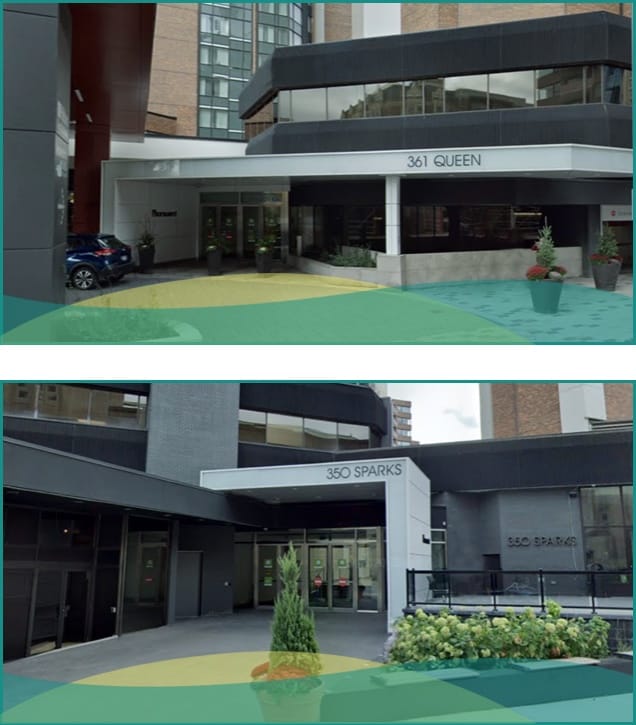
Our Address
- 350 Sparks Street, Suite 216
- Ottawa, Ontario K1R 7S8
Contact Information
- Phone: (613) 238-5960
- Fax: (613) 800-0385
- Email: [email protected]
Hours of Operation
- Monday: 9:00 AM – 5:00 PM
- Tuesday: 9:00 AM – 5:00 PM
- Wednesday: 9:00 AM – 5:00 PM
- Thursday: 9:00 AM – 5:00 PM
- Friday: 9:00 AM – 5:00 PM
- Saturday: Closed
- Sunday: Closed
Our Services
Google Reviews
Our Contact Lens Brands
